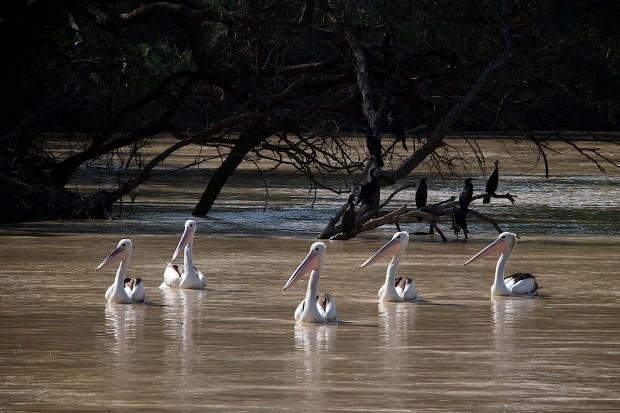An Update on Australia’s Water Wars
Rivers and wildlife in Australia. (Photo: Angus Emmott)
Last year I spent two weeks in Australia working on several stories, including a three-part series on that country’s battles over its limited water supplies. My lead story was about the Murray-Darling Basin, the breadbasket of Australia tucked in the southeast interior of the country.
Since the 1920’s, farmers there have been irrigating their lands. But 12 years of drought and too much irrigation have taken a severe toll on the downstream environment. So, the Australian government devised a plan to right the balance and give roughly a third of the water, or more, back to the environment. Many Australian farmers were not happy with the proposal. Many environmentalists said the plan didn’t go far enough.
This spring, a year after my trip, a 20-week public consultation concluded. The draft plan has re-enflamed arguments between irrigators and environmentalists, and pitted states against states. The upstream Australian states of New South Wales and Victoria rejected the plan, arguing it takes away too much water from farmers. The downstream state of South Australia said the plan does not return enough water to the environment.
Also of note, a new study came out that says returning water to the river system would reap billions of dollars in ecological benefits, from things like increased tourism and improved water quality. Those same researchers also noted that the plan is still likely to fail to address all of the region’s environmental problems. More than 60 academics also criticized the draft plan for a lack of transparency and falling short of securing the long-term sustainability of the Murray-Darling river system.
On the flip side, farmers released their own statement saying the water cuts would destroy hundreds of jobs.
The plan next goes to the Australian Parliament, which has the final say. Any water diversions will be phased in slowly, with full implementation of an eventual plan not expected until 2019.
Our coverage reaches millions each week, but only a small fraction of listeners contribute to sustain our program. We still need 224 more people to donate $100 or $10/monthly to unlock our $67,000 match. Will you help us get there today?
